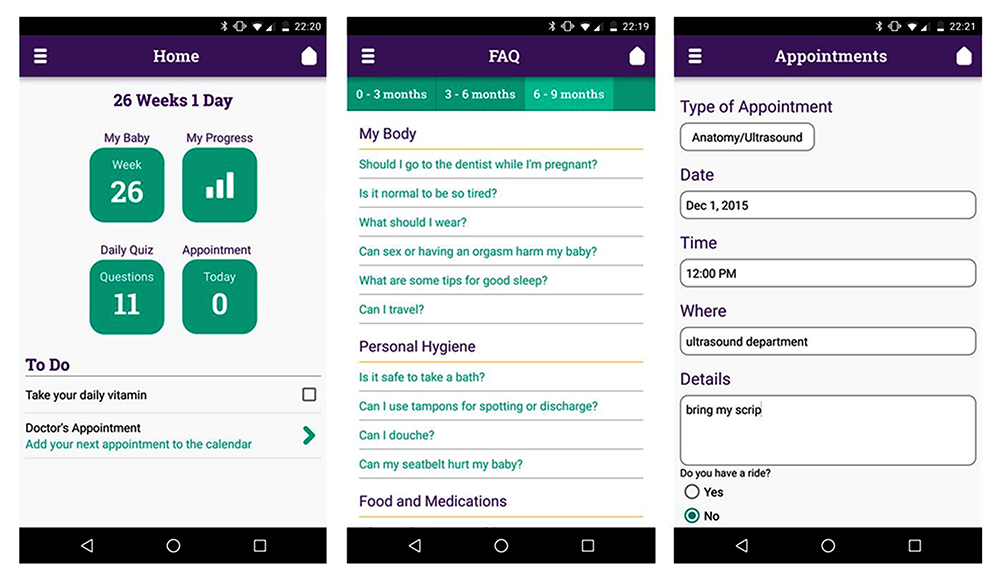Could an app help end pre-term birth?
Approximately one out of every 10 children born in the United States is born pre-term—prior to 37 weeks of gestation.
Approximately one out of every 10 children born in the United States is born pre-term—prior to 37 weeks of gestation. Pre-term birth is the leading cause of neonatal death, and can lead to long-lasting health problems, from low birth weight, to apnea, to increased risk of infection, and more. These risks are particularly high among specific socioeconomic groups, including African Americans, and families living in poverty. To combat this problem, a team of Carnegie Mellon decision scientists, led by Engineering and Public Policy Assistant Research Professor Tamar Krishnamurti, partnered with maternal-fetal medicine specialists at Magee-Womens Hospital of UPMC to develop and test an app designed specifically to target these high-risk populations.
“Mobile phone apps are a great way to engage a vulnerable population in their health care, because approximately 86 percent of American adults own a mobile phone, regardless of racial and ethnic groups,” says Krishnamurti. “Although hundreds of pregnancy-related apps exist, few have been developed through a scientific process that is patient-centered and grounded in behavioral decision research.”

Source: Carnegie Mellon University College of Engineering
The app answers FAQs, helps users track appointments, and much more.
The app is designed to address some of the key risk factors that lead to poor neo-natal health and pre-term birth: maternal weight gain, smoking, alcohol consumption, depression, intimate partner violence, poor attendance at prenatal appointments, and more. To test its efficacy, the researchers recruited study participants from Magee’s outpatient clinic. Over the course of the three-month study, the app asked participants a series of questions once a day about their risk factors, then using computer algorithms, delivered patient-specific risk feedback and recommendations for the user. If it detected high-risk events such as intimate partner violence or thoughts of suicide, it sent real-time alerts to medical professionals, who would contact the women directly to connect them to appropriate services.
Additionally, the app provides services such as basic pregnancy education, appointment reminders, fetal health monitoring aids, quitting resources for drug and alcohol addiction, and even free transportation to and from prenatal appointments through Uber.
We hope that the app can both detect risks in a timely fashion and also reassure women that their pregnancy is progressing healthily when they are at low-risk for adverse events.
Tamar Krishnamurti, Assistant Research Professor, Department of Engineering and Public Policy, Carnegie Mellon University
“Our goal with this app is to support women through their pregnancy. We hope that the app can both detect risks in a timely fashion and also reassure women that their pregnancy is progressing healthily when they are at low-risk for adverse events.”
From here, the team will ramp-up testing of the app, with plans for a randomized controlled trial over participants’ entire pregnancy and evaluating the app’s effects on behavioral and clinical outcomes.
“We are excited about the possibility of being able to roll our app out on a larger scale, making it more widely available to patients on a national and even international scale, and using it to better understand patients’ needs.“
The research team also included EPP Assistant Professor Alex Davis, Assistant Research Professor Gabrielle Wong-Parodi, and Professor Baruch Fischhoff. The clinical team consisted of Director of the Magee-Womens Research Institute Dr. Yoel Sadovsky, and Division Chief of Maternal Fetal Medicine at Magee-Womens Hospital Hyagriv Simhan.
